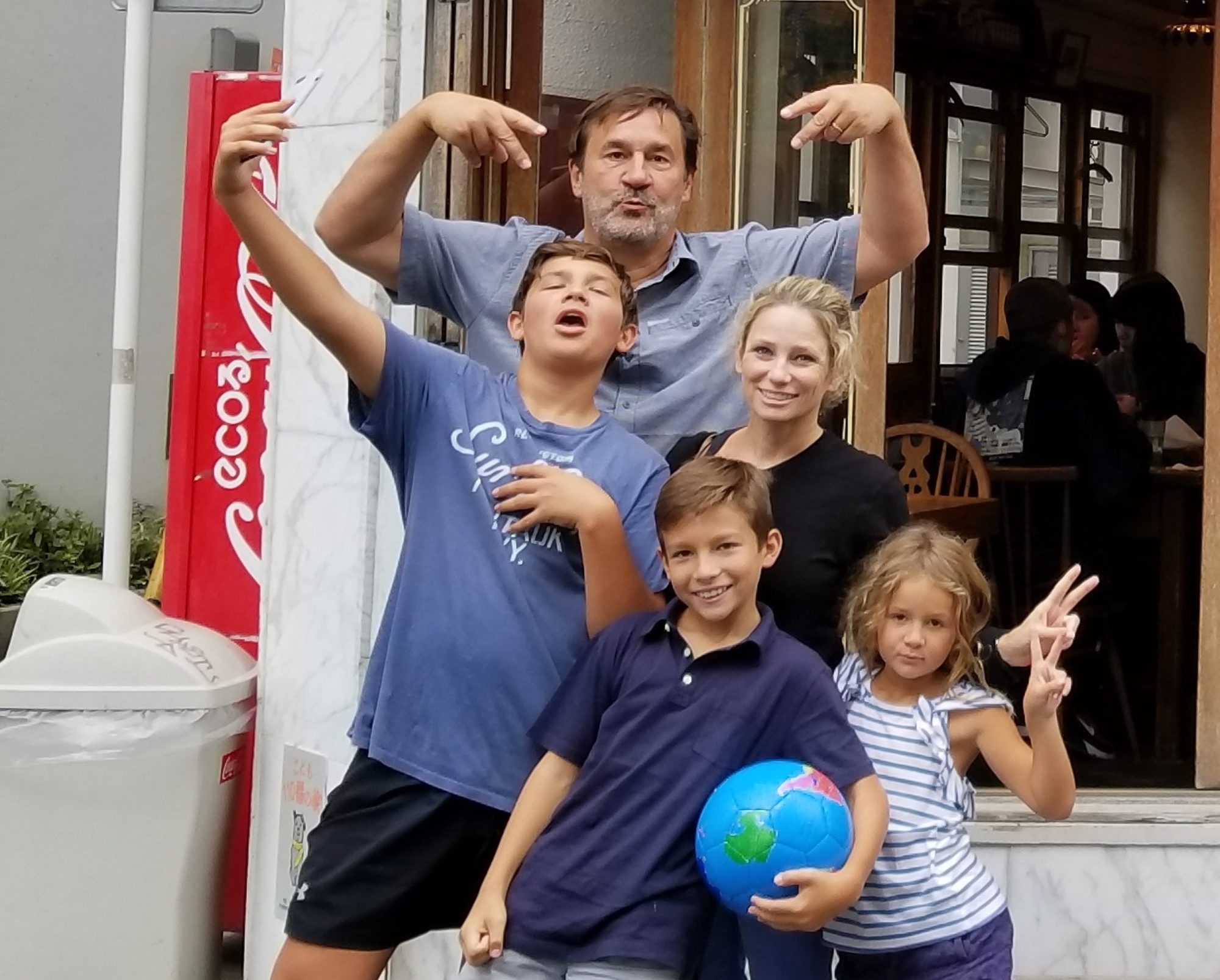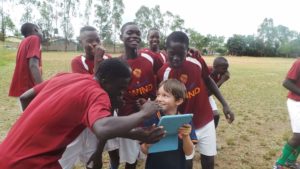When I was growing up my Mom, Alvina Bartos Balog, owned a travel agency named Watchung Hills Travel. This was a time when a travel agency, as a business was plain lousy, in contrast to today, where it is downright abhorrent. The most outstanding benefit for me and my brothers was that we got to travel places on familiarization trips, or “fam trips” in the trade, boondoggles in most businesses, and what I came to learn about Wall Street types, rampant hedonism. If we were ever unclear as to our good fortune, we were constantly reminded of such by the neighborhood kids who asked, “SO, where are you going NOW?”
And Oh the Places We’d Go. Vail. An early Club Med in Martinique. Kingston, Jamaica. Puerto Rico. Banff Springs, Canada. And Scottsdale, Arizona. I learned “fam trips” were fab trips. And the travel bug infectious. If one ever wonders who was “patient zero” and the origin of our travel bug, it was my Mom. Since then, Stacia has grabbed the ball and run with it like OJ in a white Bronco!
To place this period of time in perspective, one of these trips was in 1965 to Vail, Colorado. Yes, that Vail. In 1965. After it had been only open one year. One. And if I recall correctly Vail at the time had only three ski lifts. The town had two hotels, the Talisman and the Valhalla. We stayed down rent of the two at the Talisman. I will never forget walking past the ‘high end’ Valhalla, and its outdoor hot tub surrounded by a pile of fresh snow thinking, ‘how odd, why would men and women want to sit in THAT, nearly naked, outside in the cold, drinking wine?’.
Skiing was a relatively new sport in America, and I stood on the ground floor. If this were The Graduate and had I had investment chops then, I might well have considered recreational skiing to be my own “plastics Benjamin, plastics”, moment.* But alas…

(Jokake Inn, Scottsdale. Today the quaint entry monument at the Phoenician.)
Around 1975, we were in Scottsdale, Arizona and my father introduced me to a colleague of his named Jean. Jean was a weathered soul, having grown up living through not one but two World Wars which devastated his native France. With no perspective of my own until much later while living in France ourselves, I have come to realize the impact of war in your own homeland, and the deep lasting scars it inflicts on the psyche of its inhabitants. I’ve also come to realize Jean had a certain je ne sais quoi about him that softly whispered ‘very well to do’.
My Dad and Jean were enjoying a glass of wine, chatting, whilst together they prepared the quintessential American staple of grilled animal flesh on the outdoor BBQ. Sirloin steaks.

(du Boeuf pour les cowboys, s’il vous plait)
I’ve since learned that the French have a super warm affinity for all things American West, or les cowboys. Jean must have enjoyed how “charmante” it was to be entertaining Americans on his own spread in Arizona, in the shadows of Pinnacle Peak.
I listened as they spoke of subjects which for the most part were out of my reach. And then I heard him say something that has stuck with me. Jean began, “Jeem…I have learned much in my life from zees wars and zee crazy times. I tell you now…build a band of wealth around zee world. You never know what ees going to ‘appen. Very important you understand zis.” **
Jean was not the type to be arguing for the caching of treasure away from tax authorities, as no Frenchman would ever do zees (cough). He spoke of those that, during the war, lost businesses, art, gold, family, everything. And how it was the smart ones, the educated ones that were able to transport their knowledge elsewhere, and not only survive, but thrive. I have since met example after example of exactly that, in the form of immigrants and survivors alike. Those that adapt, survive. People that do not adapt, perish. And it leads to a guiding mantra, a quote from Eric Hoffer:
“In a time of drastic change, it is the learners who inherit the future. The learned usually find themselves equipped to live in a world that no longer exists.”
……………………………………………………………………………………………………………………………………….
Forty years later, our family was chatting at the dinner table on a recent February night in 2017, speaking about the kid’s school day, when 5th grade Alexander, often shy, reserved, but always thoughtful, blurts:
“What if school wasn’t school? What if the school, if life, could just be one continuous string of learning wherever you are, wherever you went?”

(Alexander, ahead of his time)
“I wish that I had been that observant and thoughtful at your age”, was all Dad could reply, with a sentient glance to Maman.
And then it hit me. “Build a band of wealth around the world”. Not wealth like “stuff” wealth, but wealth like “real” wealth. The wealth that moves with you, gets better with age, and can’t get stolen or compromised, except through diminution by time.
What if, indeed…
*In truth, skiing wasn’t the play, real estate was, and had I recognized that at the time, I would have my attache typing this missive right now from LogJam Air at 40,000 feet.]
* *And given seeming constant political volatility, and people’s normalcy bias, it makes sense. Today zees is commonly called spreading your bets, or simply, hedging.










